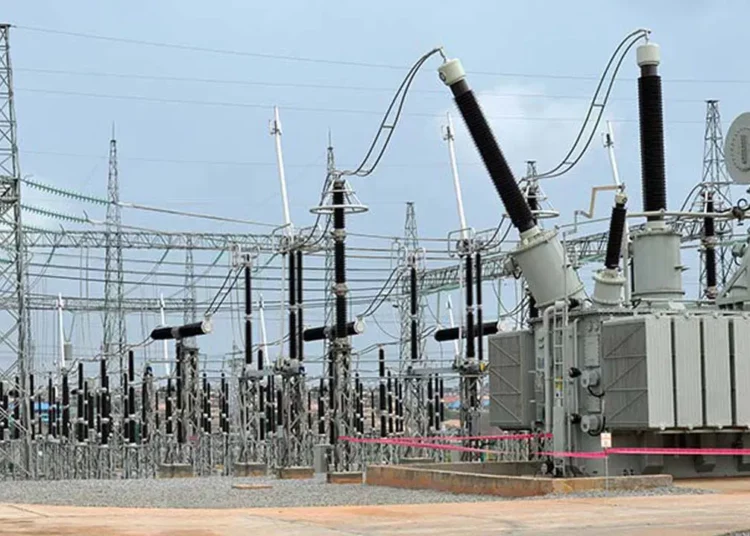Electricity distribution companies (DisCos) in Nigeria need recapitalisation of no less than $500 million to improve the distribution of power across the country.
Managing director of Azura Power West Africa, Edu Okeke, who made this recommendation, described the DisCos as the weakest link in power sector value chains.
Speaking at the 4th edition of the Power Correspondents Association of Nigeria (PCAN) annual workshop held in Abuja on Thursday, Okeke noted that even with tariff adjustments, many DisCos struggle to pay their total bills to the entire value chain.
According to him, to ensure stability and improved capacity of DisCos, it has become imperative for the Nigerian Electricity Regulatory Commission to mandate similar capitalisation standards for DISCOs as being carried out in the banking sector.
He said, “For any investment in the power sector to be viable, investors must be assured of Cost recovery. There are only two ways to achieve this: either the government pays or consumers do. I commend the government’s recent decision to transfer costs to consumers, starting with Band A.
“Ultimately, consumers will bear a fair share of the cost of the power they consume. However, this equation has a critical weak link — the Distribution Companies (DISCOs), who directly interface with consumers. As things stand, even with tariff adjustments, many DISCOs struggle to pay their total bills to the entire value chain.
‘This is largely due to their lack of capacity to make the necessary investments to recover costs effectively. To enable meaningful progress, DISCOs must be adequately capitalised. Unfortunately, most DISCOs have negative equity, leaving them with little to no financial stake. This situation must change.
“Ideally, no DISCO should operate without at least USD 250 million in shareholder funds. Just as the Central Bank of Nigeria has raised capital requirements for banks to ensure their stability and capacity to serve, the Nigerian Electricity Regulatory Commission (NERC) should mandate similar capitalisation standards for DISCOs.
“Many DISCOs also carry a heavy burden of debt, accumulated over time through a mix of operational challenges and systemic issues. To truly address this problem, the government needs to come clean and take a decisive step.
“My recommendation is a two-pronged approach: to consider removing these debts from the DISCOs’ books and mandating them to increase their capital by at least USD 500 million each. This will require existing shareholders to dilute their holdings to attract new investors with real capital to invest in infrastructure — not just on paper, but in transformers, cables, and equipment to serve customers reliably.”
In his remarks, Adebayo Adelabu, the minister of power said that the Tinubu-led administration remains fully committed to transforming Nigeria’s power sector through meaningful and actionable reforms.
The minister who was represented by Sunday Owolabi, Director, renewable & rural power access at the ministry, said that the government focused on ensuring that policies are not only visionary but also practical, impactful, and sustainable.
“From the ongoing efforts to address infrastructure gaps, enhance power generation, and improve transmission networks, to the vital reforms in distribution and the full implementation of the electricity market, we are resolute in our mission to improve the power supply for every Nigerian.
“As we transition from words to action, I call on all stakeholders, including investors, regulators, and yes, the media—represented here by the Power Sector Correspondents Association—to play their critical roles in this transformation. Your work in informing the public, holding us accountable, and providing constructive feedback is essential as we strive to build a resilient power sector that meets the needs of our growing nation.”
He stressed on the need for stakeholders to embrace innovation, strengthen collaborations, and focus on implementation of policies.
Earlier in his address, chairman of PCAN, Obas Esiedesa, said the workshop was organised to chart a new course for the country’s power sector.
He said: “As journalists covering the power sector, we are concerned that the sector has seen more discussions than actual progress. Despite the constant dialogue, each step forward often seems to bring about setbacks.
“Our concerns are heightened by the fact that these issues persist despite the Service-Based Tariff and the increased tariffs for Band A customers.
“As journalists, we find the state of the sector disheartening, and I believe I speak for many when I say that we cannot be silent. Today’s workshop is a call to action. We are here to discuss meaningful ways to move forward, and I am glad to see so many industry leaders in attendance.”











